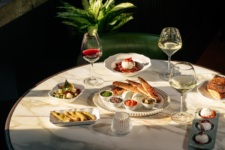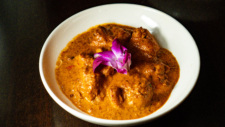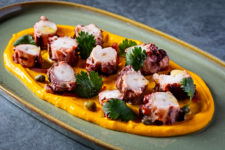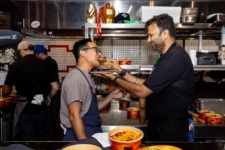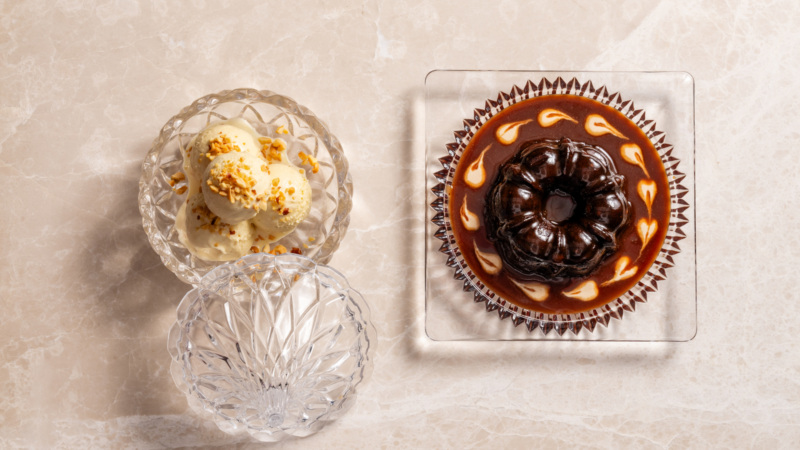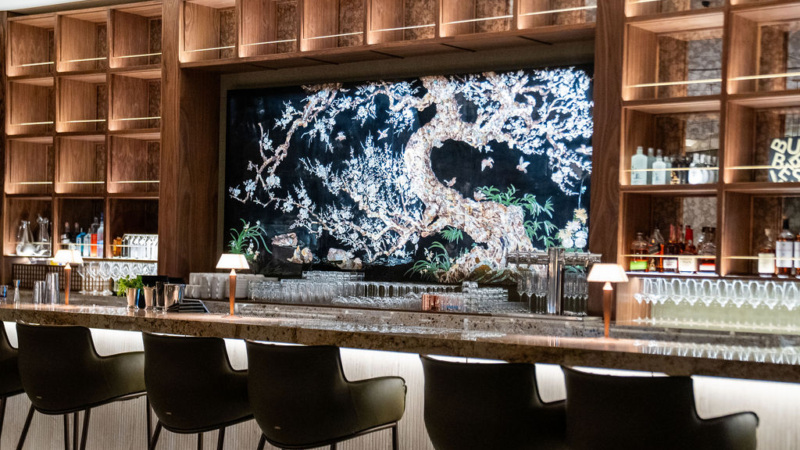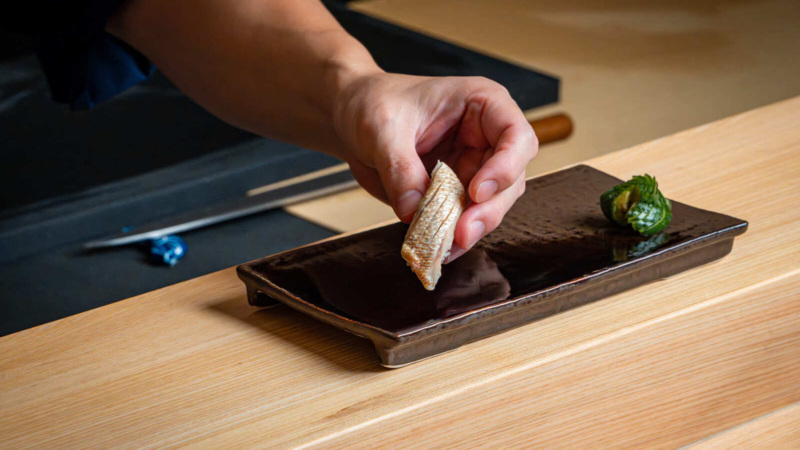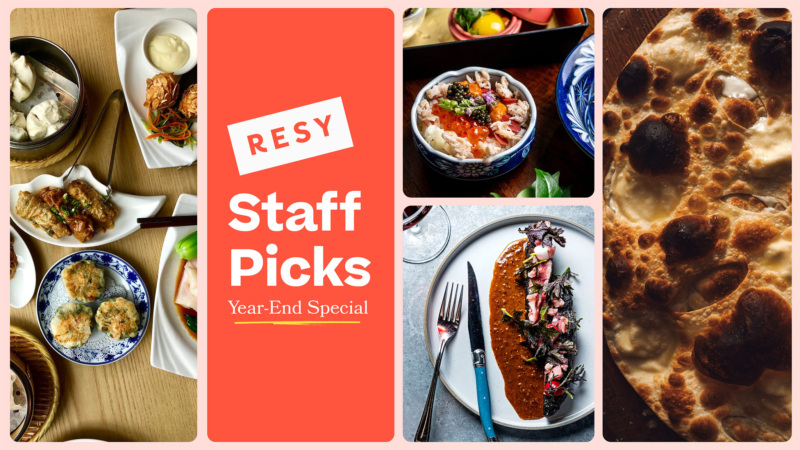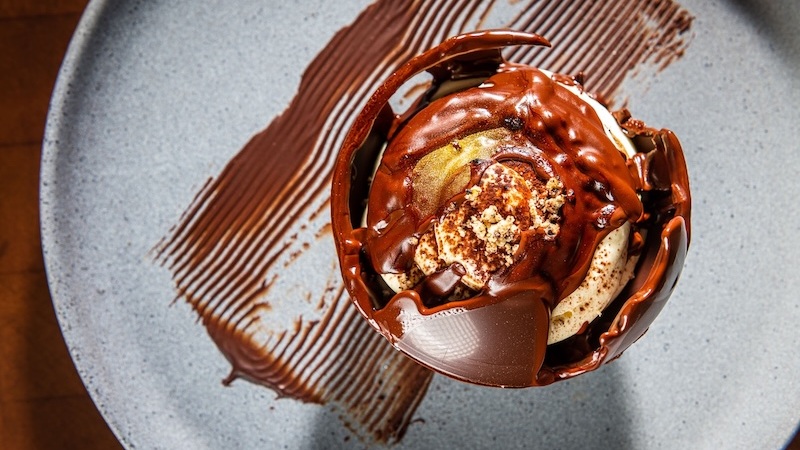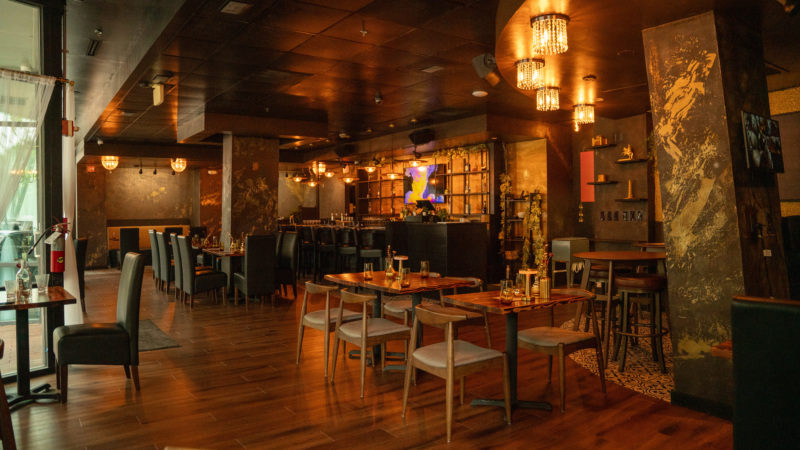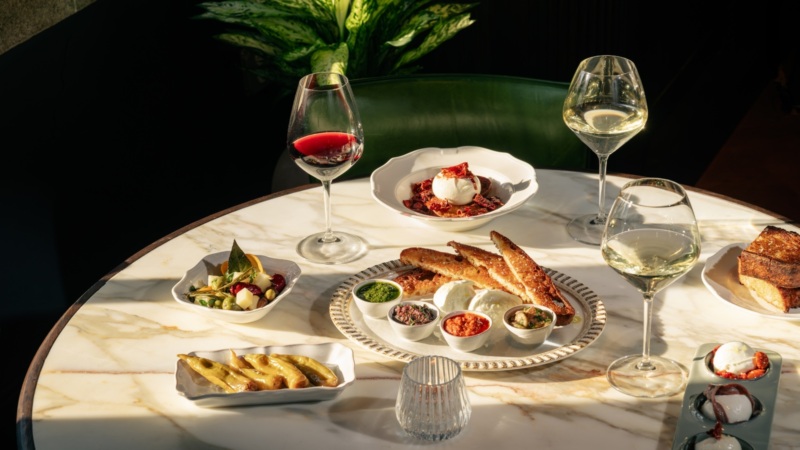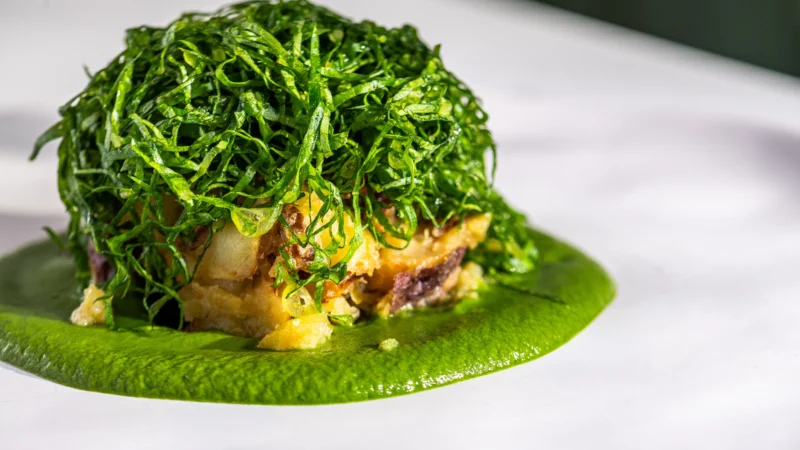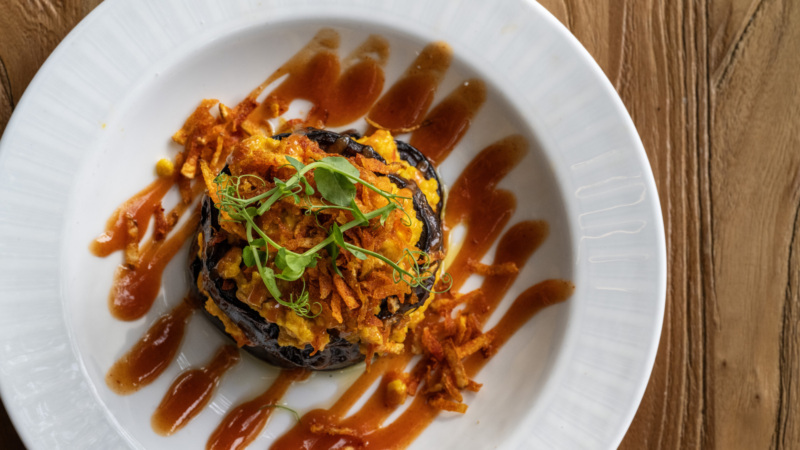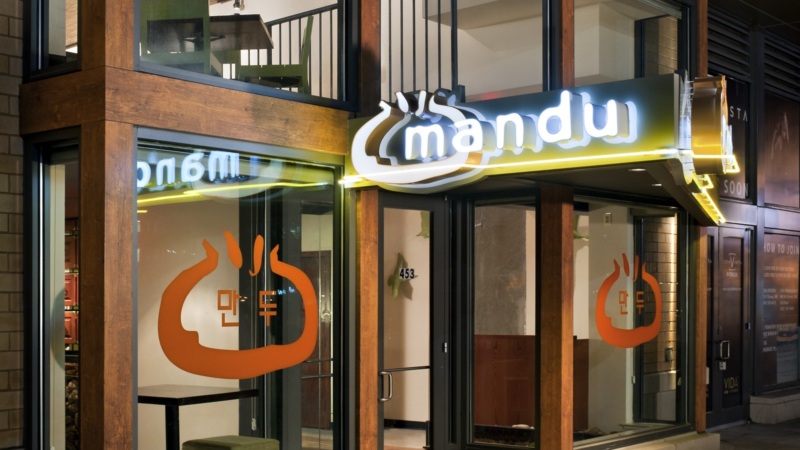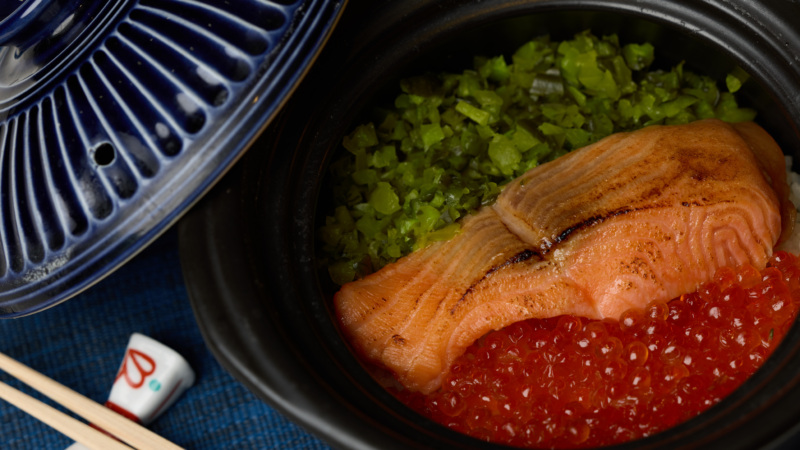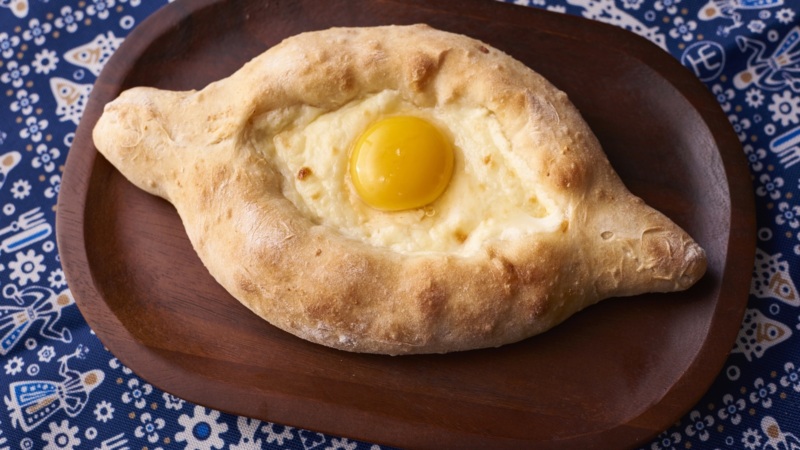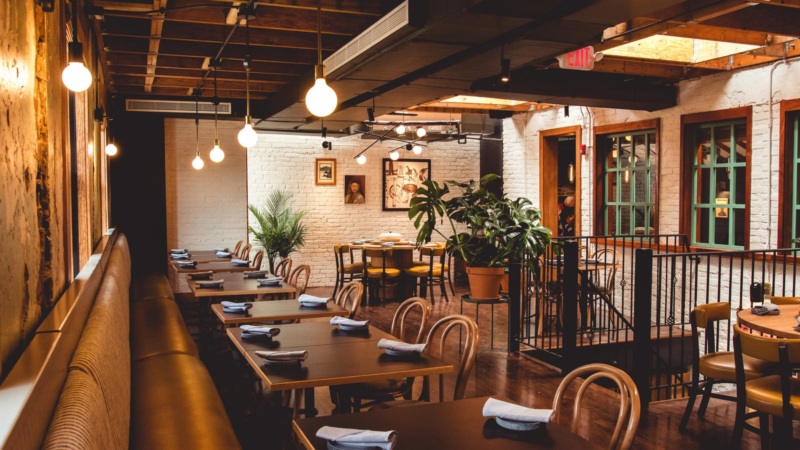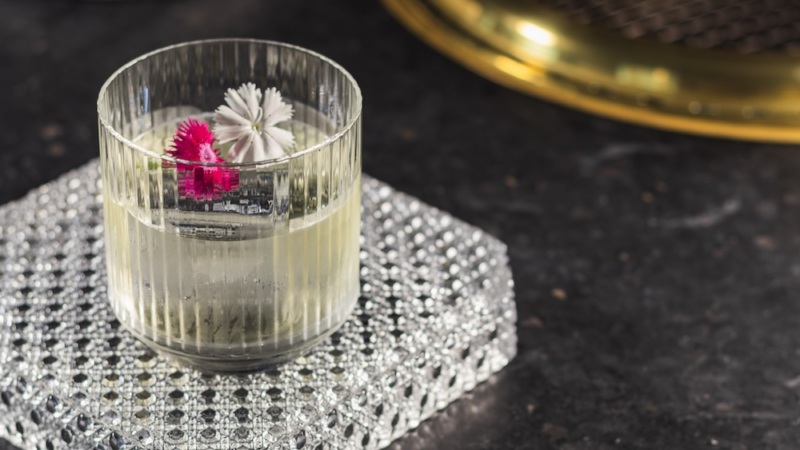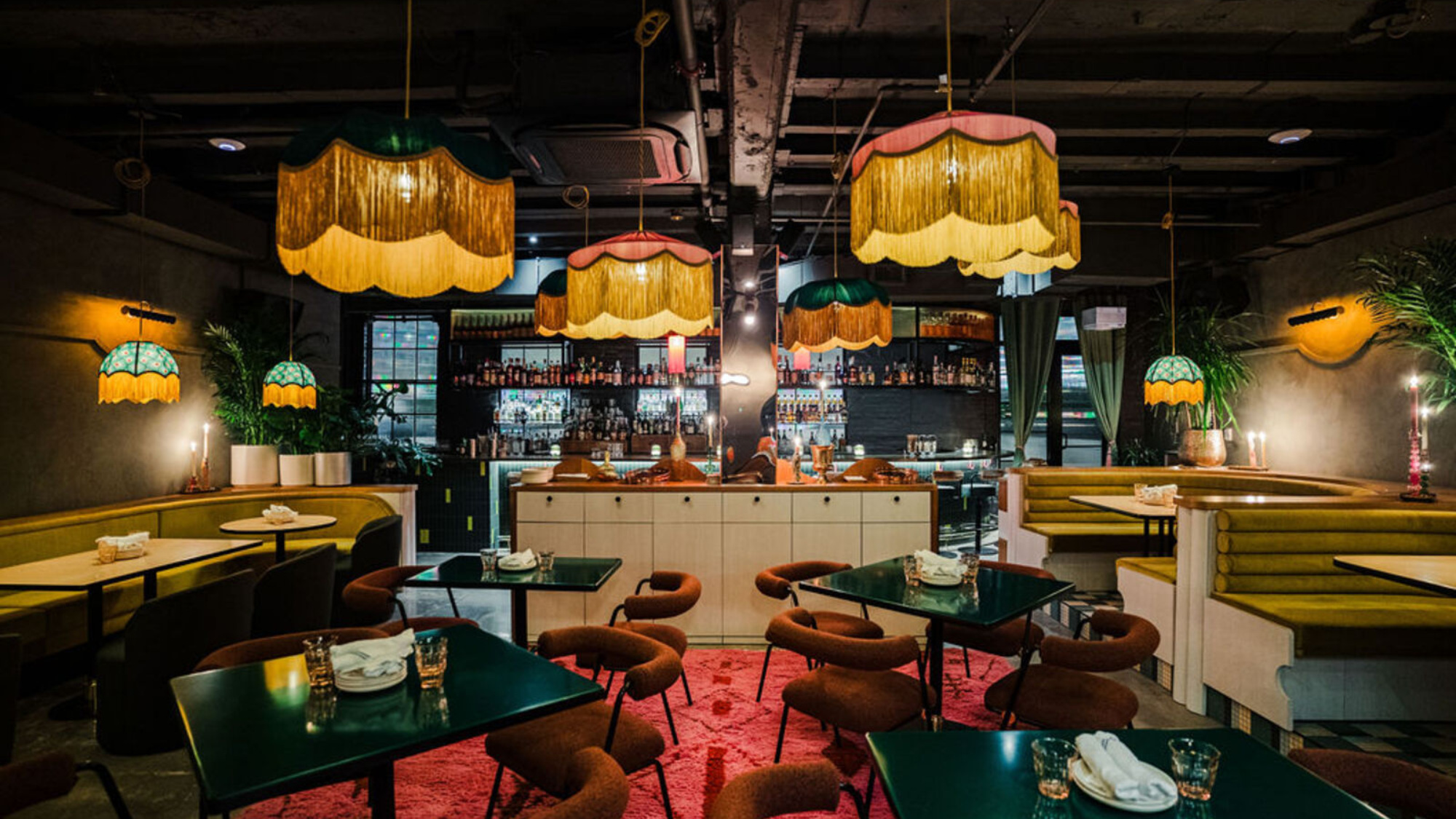
At La’ Shukran, Michael Rafidi Delivers the Full Levantine Experience
Published:
The first time you visit La’ Shukran there’s a good chance you might get lost.
GPS may fail in your efforts to locate the front door, hidden just off an alley in the Union Market neighborhood. To find it, you’ll have to go past a few dumpsters, turn to your right, and look for the stained-glass transom.
But to find La’ Shukran, you can’t rely on your eyesight or technology alone. Michael Rafidi, the 2024 James Beard Outstanding Chef, and owner of Albi and Yellow cafe, wants you to experience his latest late night Levantine bar and bistro using all your senses, including taste, touch, sounds, and smells.
“First, we want you to follow the sound of the music,” he says. “That will lead you into the alley, finding the door [then] seeing the stained-glass window and the somewhat dramatic staircase inside with a streetscape soundtrack. It’s like you’re walking through the souk in Beirut or Ramallah or Amman.”
Rafidi transports diners halfway around the world with a bar, restaurant, and lounge that channels the feeling of the Levant region. And by the time you reach the top of the stairs and check in with the host stand, you’ll find yourself in the middle of it all. Here, the food and drinks work in harmony with the music and energy of the room, giving an almost transportive effect.
“You walk straight into the heart of the experience,” he smiles. “The music is loud, the lights are low, the heat from candles burning, smells of the kitchen hit you, and the bartenders are right there shaking drinks.”
***
Welcome to Washington, D.C.’s hottest opening of this last stretch of 2024, and one of the year’s most anticipated restaurants, period. Unlike the Michelin-starred Albi and its focus on live fire, or Yellow’s sunny cafe disposition (now with kebabs and pizzas), Rafidi’s newest baby — years in the making — oozes nocturnal energy with a casual bar-focused offering that emphasizes music, celebrating the Levantine region and his own Palestinian roots.
“The whole experience at La’ Shukran is meant to celebrate an eclectic and immersive experience in Arabic traditions and ingredients,” Rafidi says.
Take for instance the decadent foie gras with halva butter and pickled huckleberries. The dish comes served with a side of puffed ras-el-hanout beignets combining rich, savory, and buttery flavors all in a single dish. It also pairs perfectly with a Bedouin coffee — bar director Radovan Jankovic’s better take on the espresso martini, here infused with cardamom spice.
Beyond first bites and drinks, we wanted to go deeper into what makes La’ Shukran like no other restaurant or bar in the District. Rafidi was more than happy to abide – here’s what makes the restaurant so special, in his own words.
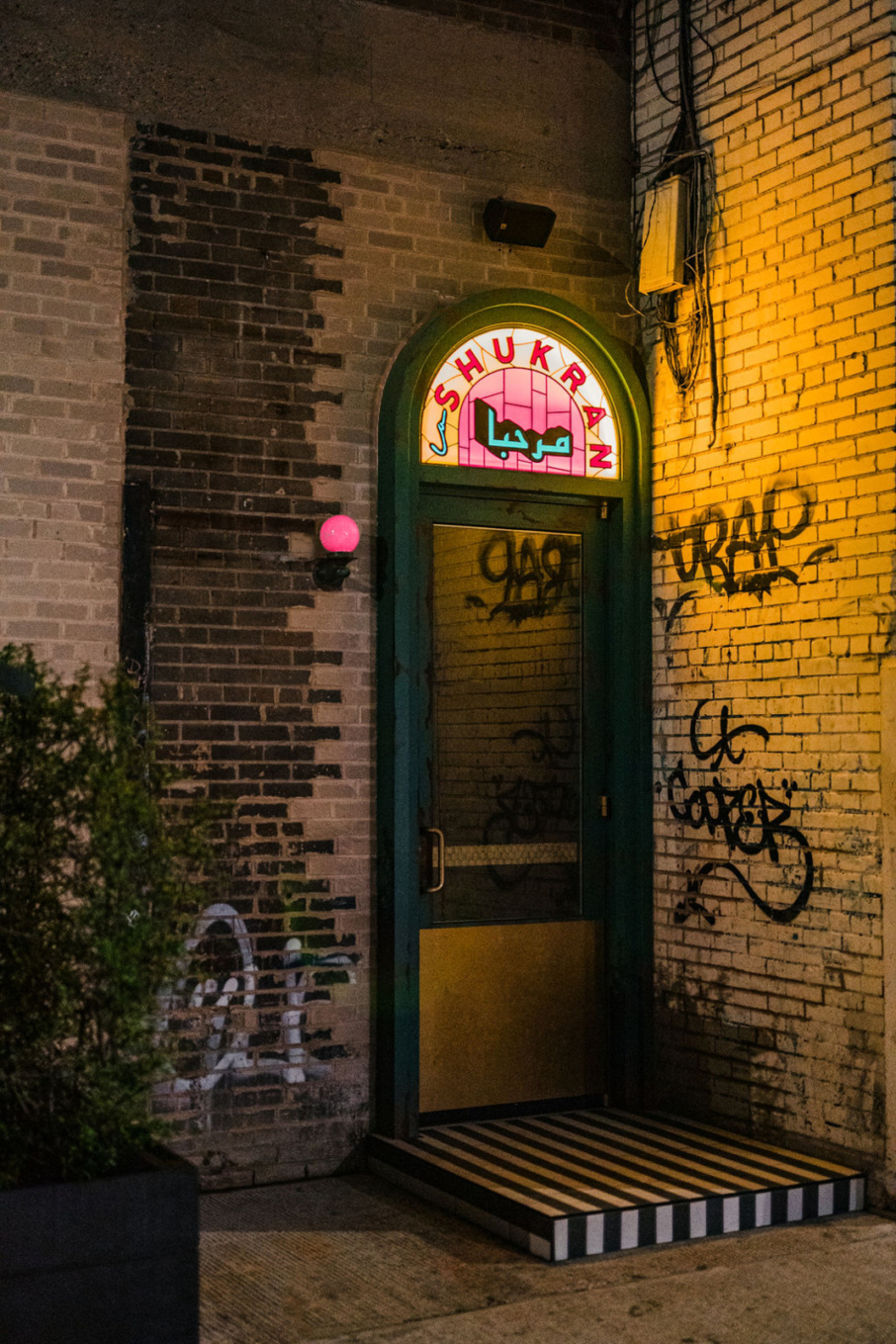
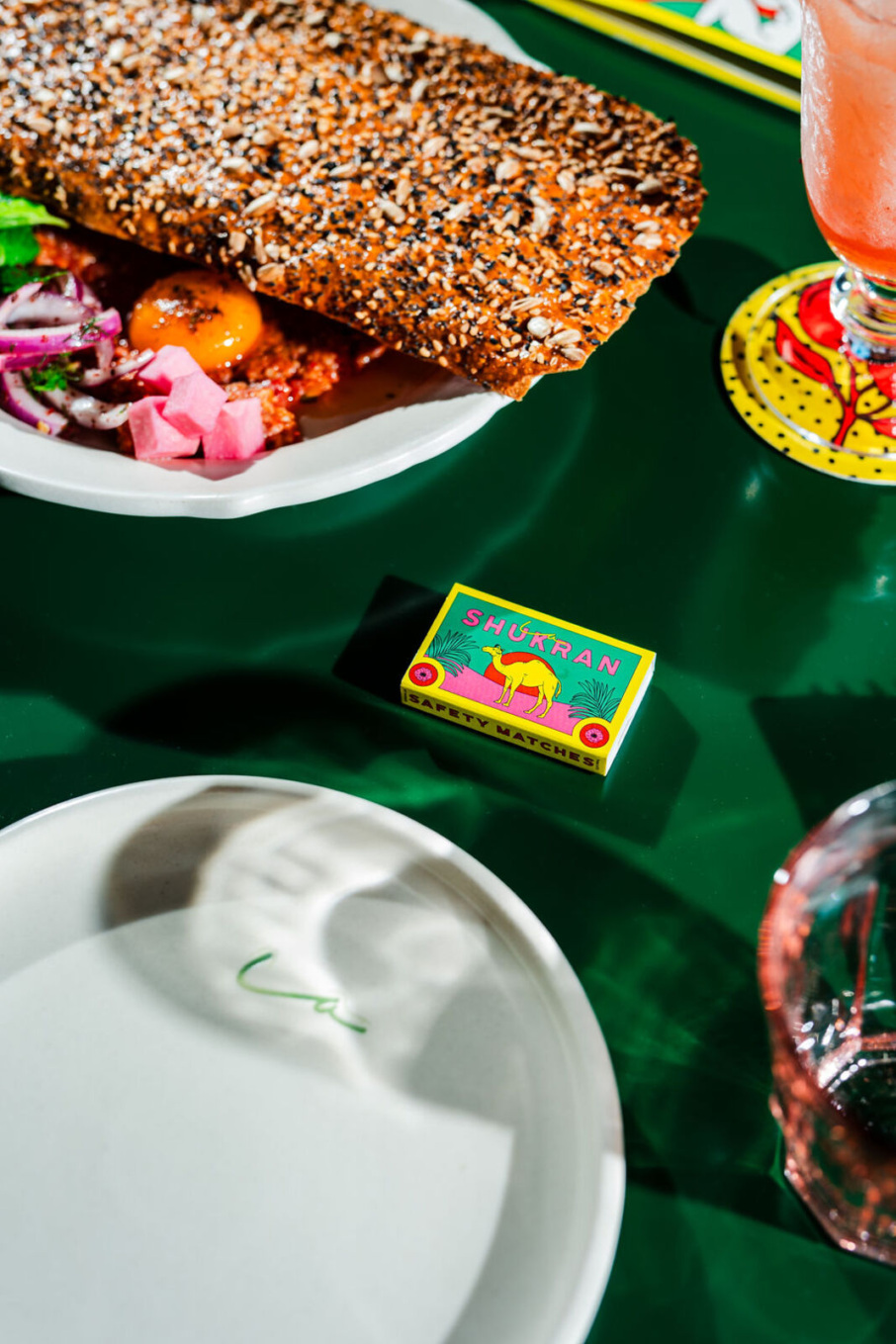
Resy: Where did the name La’ Shukran come from, and why the secret alley entrance?
Michael Rafidi: La’ Shukran is a name that came about in part because we liked the playful nature of it. But there are a couple of other aspects to it as well. In English, the phrase can have a completely different meaning, depending on how you emphasize the phrase: “No, thank you.” Changing it from a refusal to actually being a way of saying ‘thank you’ instead. There’s also a phrase in Arabic, “La’ Shukran ala wajib,” which means essentially “there is no thanks necessary for a duty,” and we see hospitality as kind of an obligation in a sense.
As for the alley entrance, we always wanted La’ Shukran to have a little bit of a gritty feel to it. It wouldn’t have made sense in a glass and steel modern building. We wanted people to feel like they were in on something. And for the space to feel simultaneously new and fresh, but also like something that had been around for a long time and evolved over the years.
This restaurant is equal parts restaurant bistro, bar, and lounge. Describe the vibe for a first-time visitor, and when can we expect more musical acts?
It’s all part of the whole. The drinks are a big part of it, which is why we seat guests with cocktail books, then bring them the dinner menu. If you go to a friend’s house for a dinner party, they don’t go straight into the menu as soon as you walk in the door. They get you comfortable, and get you a drink first, then you get into the food.
In terms of performances, we’re planning to have regular – possibly monthly – DJ sets. We ran our first last week, and the turnout was great. The feel of each night will vary depending on who’s spinning records, but the core identity of the space, and that tension between being a bar and a bistro, will always be a part of it.
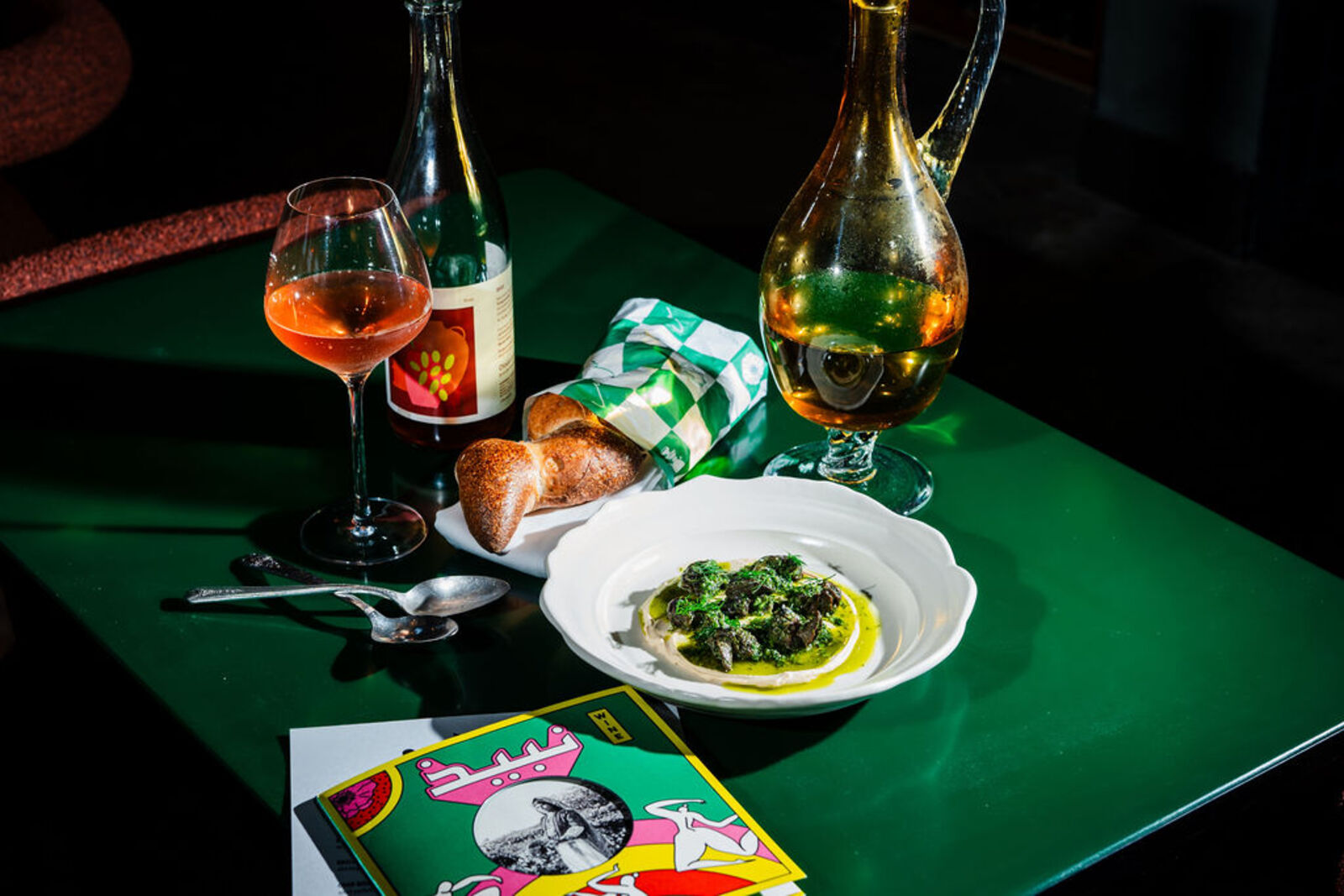
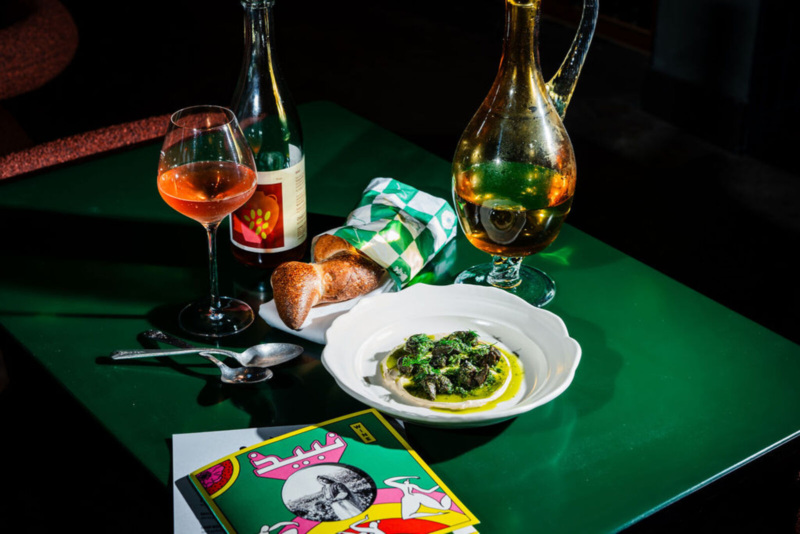
What is your top cocktail and dish of choice that people must order?
There are a few [dishes] which have become emblematic of the concept, and must-trys. Specifically, the escargot hummus with poppyseed sourdough, the falafel jibne, and the foie gras. Those combine the kind of elevated and eclectic spirit that we’re trying to capture.
The cocktail side starts with a selection of drinks using arak as a principal ingredient. It definitely speaks to what we’re doing with the bar program, trying to incorporate a spirit which is so prevalent in the Levant region and highlighting it while still making it approachable. The Filfil (‘pepper’ in Arabic) is among our top cocktails, and the idea for the Bedouin coffee (and the name) came directly from our travels in Jordan and Wadi Rum.
Arabic spirits and wine appear on the drinks menu. Why was it important to feature these?
Working with spirits and wines from the Levant region made sense. This was part of why we traveled to Palestine and Jordan in 2023 to spend time with producers, distillers, winemakers, beverage directors, and chefs over there.
There is a huge variety of flavors, ingredients, and even grape varieties which aren’t really found elsewhere, so we always knew that incorporating them into La’ Shukran was an essential part of the experience.
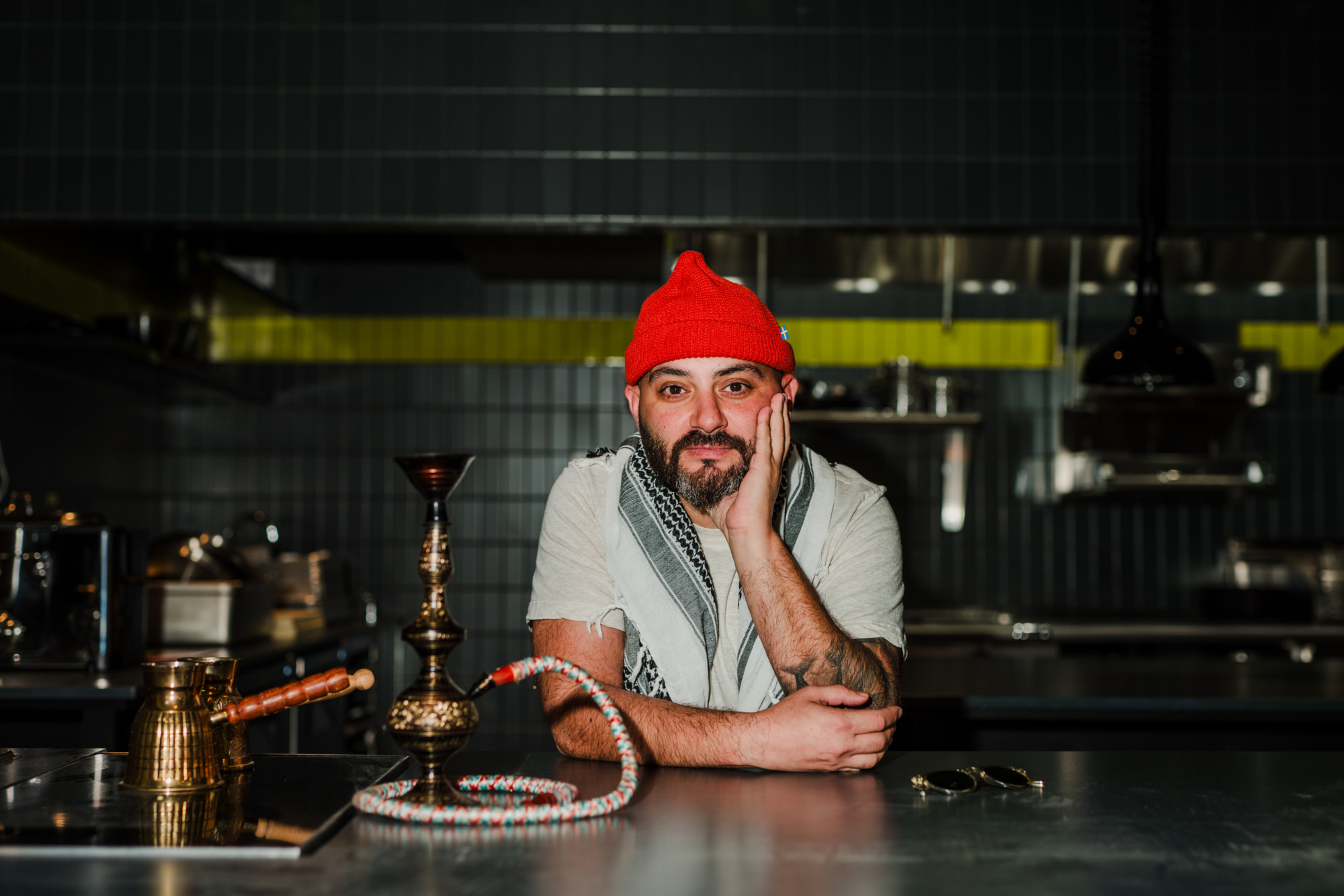
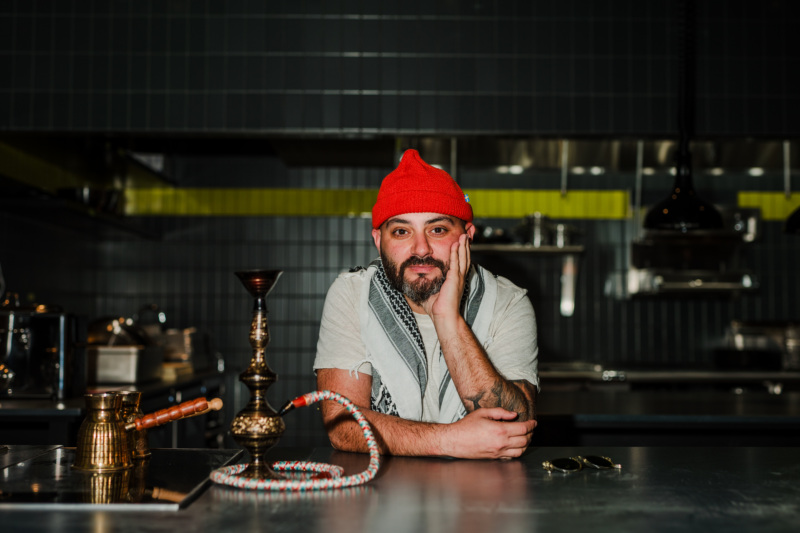
Can you speak to a dish that pays tribute to your family or a specific place in the Levant?
There are a few different ways to look at this through the hummus and sourdough section. The crab ‘msabaha hummus combines the flavors of the foods I grew up eating along with the fact that I grew up here in the Mid-Atlantic.
Anytime I can combine those elements it’s really personally significant because that is truest to my own experience. Similarly, the escargot hummus brings in elements of my cooking career before opening Albi. For a chef, French cuisine is almost inescapable, and I really wanted to be able to present something of those experiences in an unexpected way. The beef tongue hummus is loaded with shawarma spices and includes the herbs, tahini, and pickles that you would find in a classic shawarma in Ramallah or elsewhere in the region but repackaged as a hummus.
Dessert is serious business at La’ Shukran. Who created these dishes?
Alicia Wang is our executive pastry chef. She’s in charge of all the desserts for our restaurants and the pastry program at Yellow. She’s brilliant at taking traditional Arabic desserts and presenting them in unexpected ways, or with little surprises hidden inside.
Not to reveal too much, but … the late-night menu. Why was it important to have one?
We wanted La’ Shukran to have a definite late-night feel to it, and part of that meant keeping the kitchen open late rather than just switching gears to being an all-out bar. One thing the District could use more of, in our opinion, is late-night options, and we wanted to provide one. On school nights, we offer the dinner menu straight through until the kitchen closes at 11 p.m. But we start offering the Big Jibne, our keft burger, at 9 p.m. Then, on Friday and Saturday nights we switch to the late-night menu at 10 p.m. It’s still a pretty robust menu and definitely includes the burger, and we offer that until midnight.
Finally, any other surprises ahead?
We’re always looking for something new that we can offer. Updating playlists, bringing a new selection of cocktails and wines to the menu, constantly experimenting in the kitchen, so in terms of surprises and changes, there will be plenty ahead. They’ll keep coming on a pretty regular basis.
It’s too early to get into specifics, but we’re also looking at a number of different ways to collaborate with other bar programs, chefs, and beverage people in general both locally, nationally, and abroad, so that’ll be something to look out for as we go.
La’ Shukran is open for dinner now. Reservations are released Monday at 10:00 AM for Thursday – Monday of the following week.
Tim Ebner is an award-winning food and travel writer. He has contributed to The Washington Post, Eater, Thrillist, Travel & Leisure, and Edible DC. Follow him on Instagram. Follow Resy, too.
